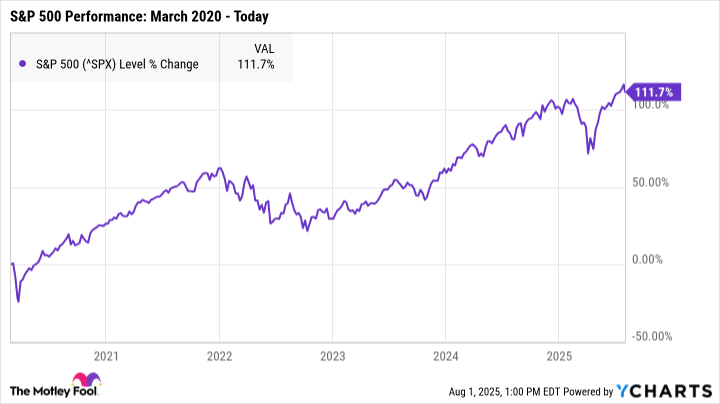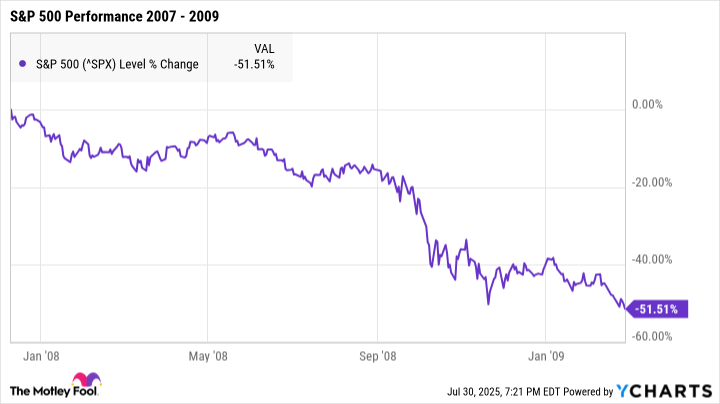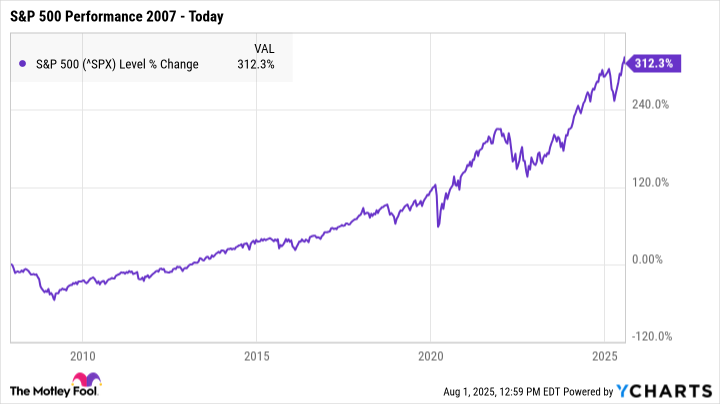The S&P 500 (^GSPC -1.60%) has been breaking records over the last few weeks, officially reaching a new all-time high in July. As of this writing on Aug. 1, it’s up by about 25% from its low point in April.
However, not everyone is optimistic about the market right now. In fact, one-third of U.S. investors say they are feeling “bearish” about where stocks will be in the next six months, according to the most recent weekly survey from the American Association of Individual Investors.
With stock prices near record-breaking highs, some investors may be tempted to wait until the next downturn to buy at a discount. Here’s what history says about whether you should buy now or hold off.

Image source: Getty Images.
Is it safe to invest now?
Nobody can predict where stocks will be a few months or a year from now, and new policies out of Washington could change things on a dime. However, several scenarios are possible.
For one, stock prices could continue soaring like they have over the past few months. If that happens, right now would be a fantastic time to buy to see immediate gains.
Scenario two is that the market takes a sharp turn for the worse, like it did earlier this year amid tariff uncertainty. Between February and April, the S&P 500 fell by close to 20%, leaving many investors panicked and eager to sell. But those who stayed the course and held their investments reaped the rewards when the market quickly rebounded.
A similar situation played out in March 2020, when the S&P 500 experienced one of the fastest crashes in history at the start of the pandemic. The short term was rough, but the S&P 500 has since earned total returns of nearly 112%.
The third scenario may be the one that concerns investors the most: a prolonged recession. But even if that is on the horizon, investing at record-high prices doesn’t necessarily mean you’ll lose money.
A market downturn may result in your portfolio losing value. But if you hold your investments until the rebound without selling, you likely won’t experience any actual losses.
Say, for example, you invested in an S&P 500 index fund in December 2007. The market was reaching record highs at the time, but it was about to slip into the Great Recession, which would last until 2009.
In that time, your investment would have plunged by more than 50%. Selling at any point during that recession could have locked in significant losses, since you would have likely been selling your investments for far less than what you paid for them.
However, if you simply stayed in the market, you would have earned total returns of around 75% after 10 years and 312% by today — more than quadrupling your money.
In other words, even if you had invested at the seemingly worst possible moment — at record-high prices immediately before one of the most severe recessions in U.S. history — you would still have made a significant…
Read More: The S&P 500 Has Reached an All-Time High: Should You Invest Now or Wait for






